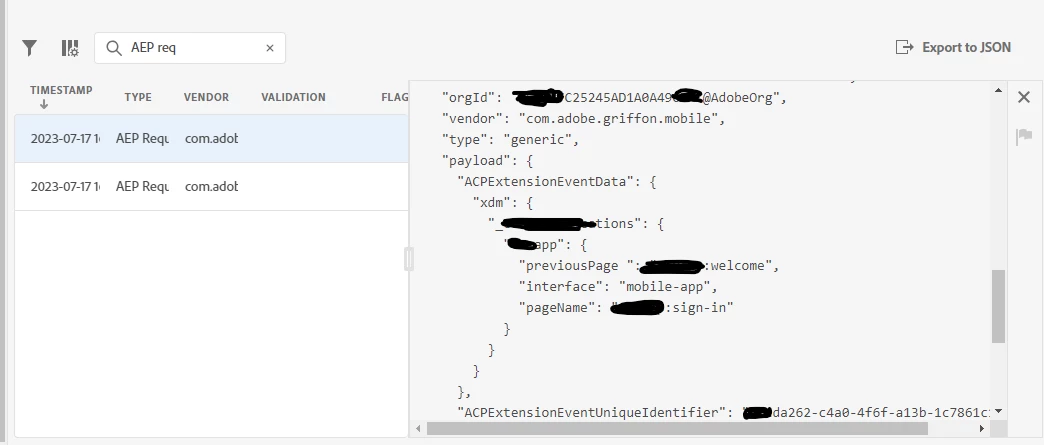Level 2
July 17, 2023
Solved
Adobe Analytics Data is not reflecting into the Reportsuite
- July 17, 2023
- 3 replies
- 1971 views
Hi,
we created a new reportsuite (for testing) for the mobile SDK implementation and all the implementation has been done and mapped new reportsuite to the Analytics service in Datastreams. Lifecycle metrics and visits data are captured in new reportsuite, but standard page data is unavailable in new reportsuite. I created a rule in Tags property by following this article's steps https://developer.adobe.com/client-sdks/documentation/user-guides/getting-started-with-platform/rules-and-xdm-events/ and tested in Assurance debugger as per mentioned article, and for reference, you can see AEP request in the attached snapshot.
Note: we configured Adobe Analytics extension with the existing (development and prod) reportsuites in the same property

